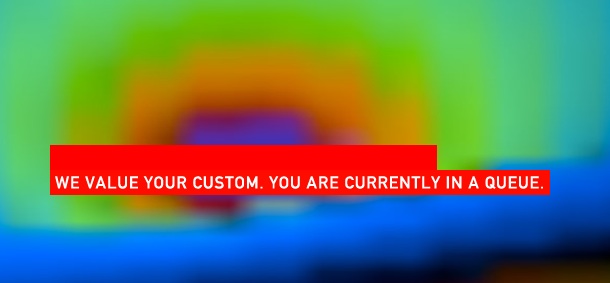As most techie folk know, Radiohead is selling their new album In Rainbows online here (Information Week story here). I went ahead and bought it today for exactly £0.00. I don’t feel guilty about it either, especially after learning that Radiohead has already made a cool £4.8 million from its sales.
When I first learned about this venture a few weeks ago, I was happy because Radiohead has cut out their large distributor EMI and the MP3 downloads are DRM-free. That’s pretty exciting. My heart got all atwitter thinking about barter and gift economies and the possibilities for the ways in which consumer- and producer-interactions might change if others take up this model.
I think Luke offers a better reading of the situation, though. He writes:
But, then, while walking home (and listening to my Ipod), there are a lot of things I had to wonder. What audience is being targeted for this new album? What assumptions could I safely make about audience requirements? Who isn’t included in this, but might want to be?
Well, the short life of requirements I came up with, after paying for the album:
1. You must have access to a computer
2. You must be able to download the entire 50MB album
3. You need to have a computer capable of playing the music
4. If you want to transport your music, you need to have a way to do that as well (flashdrives, CD, DVD, webspace, pushsites, etc.)
5. If you pay any amount, you must have an acceptable credit card
6. You need to register with the website, which includes email, address, name, and mobile phone #Upon reflection, that’s a pretty limiting set of traits in order to download an album. Given that there was no national announcement – “Radiohead! New album! You can get it for free!,†I imagine most people who have heard about this offer read up on technoblag or music sites, or are a fan of Radiohead. […]
That’s not revolutionary. Hell, it’s not even an “opening salvo†in an us-versus-them, David-and-Goliath music biz war, or “yet another challenge†to the music industry. It’s another way to distribute their songs and earn money from them. A real challenge would be to offer music for free, in any format, without copy protection, and not attach it to a “shopping cart†where you have to offer up a price – a tactic which, I am assuming, is designed to get you to think about how much you’re cheating them if you grab it for free.
My experience “buying” the CD was interesting, as the system was a bit backed up, so I was put into a “queue”:
I giggled a bit at the Britishisms (“custom”), but then, I have to think about invention and delivery: What is being produced (and reproduced) by this delivery model? I think Luke’s belief that only a certain in-crowd is going to be aware of this release is true: a reproduction and reaffirmation of an “in the know” group who is “hip” and “with it” — an Adornian commodity fetish reproduced. Though an Adornian reading seems somewhat simplistic. It replaces utopian gift culture optimism with cynicism.
It seems that both of these readings (heralding the change as revolutionary and dismissing it as merely reproducing the same old same old) somehow miss something. What are the effects of being in a digital queue — of actually having this called attention to? Certainly, when I am shopping elsewhere online, I could view it as a queue when the browser is loading a checkout page, but it’s never presented as such (in my experience, at least). I am a sole shopper at Amazon.com, with many resources around me (reviews, recommendations, etc.), but I am never in a line to buy a product.
With Radiohead, we are brought back to the CD release party with the line, the queue extending outside the record store. Thought it is digital, I can’t help but think of the line of people around me who I am both completely separated from (I will never know nor see whoever bought their CD right before me), but also who I am very much connected to (this is the tech-savvy consumer: we are reading the same reviews; I am reading her blog; she might be reading mine; etc.).
Just some rambling thoughts…
EDIT: Luke tells me I was probably put into a queue only because I chose not to pay money. He paid and was emailed a link. Hmmm…



The other issue at play here is that credit card fee for the people who paid at least a pence. If you paid just that, more than 95% of your charge went straight to the credit card companies. If you paid as much as $8 (4 pounds I think) then it’s still 10% of it, which is also way too much.
The fee is called the Interchange fee, and I think this whole thing is pretty interesting simply because even though consumers pay it indirectly through the price of goods all the time, this is one of those few times where the merchant (in this case, Radiohead) is able to separate it from the goods and pass it along. The fee is very, very complicated, and Radiohead is lucky to be selling just 2 discrete products.
I’ve been working on this issue for the Merchant Payments Coalition for some time. If you don’t mind a shameless plug, check out UnfairCreditCardFees.com for a lot more on the interchange issue. It’s been under the radar for awhile, but I think might be ramping up in coming months. Thanks!
Oh, and FWIW, I really dig In Rainbows. Not top 2 or 3 among Radiohead albums, but then almost nobody has made 2 or 3 albums as good as Radiohead.